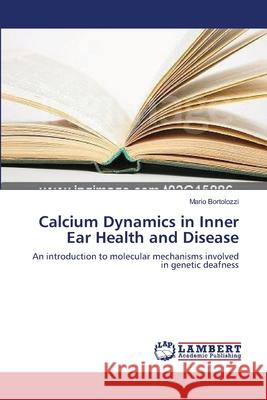Calcium Dynamics in Inner Ear Health and Disease » książka
Calcium Dynamics in Inner Ear Health and Disease
ISBN-13: 9783838304762 / Angielski / Miękka / 2010 / 120 str.
Calcium ion (Ca2+) acts as a fundamental signal transduction element in the inner ear, delivering information about sound, acceleration and gravity through a small number of mechano-transduction channels in the hair cell stereocilia as far as to the ribbon synapse, where it drives neurotransmission. The genetic approach is proving fundamental in unravelling the molecular basis of Ca2+ function in the control of these key cellular processes and it will undoubtedly pave the way to therapies for auditory dysfunctions in the years to come. Despite all the information provided by animal models and by electrophysiological studies, a notable progress into understanding the sequence of events that occurs in inner ear genetic-based disorders has been lacking. A combination of sophisticated experimental techniques and mathematical models appears to be the proper approach, sometimes necessary, to investigate the huge complexity of the hearing organ.
Calcium ion (Ca2+) acts as a fundamental signal transduction element in the inner ear, delivering information about sound, acceleration and gravity through a small number of mechano-transduction channels in the hair cell stereocilia as far as to the ribbon synapse, where it drives neurotransmission. The genetic approach is proving fundamental in unravelling the molecular basis of Ca2+ function in the control of these key cellular processes and it will undoubtedly pave the way to therapies for auditory dysfunctions in the years to come. Despite all the information provided by animal models and by electrophysiological studies, a notable progress into understanding the sequence of events that occurs in inner ear genetic-based disorders has been lacking. A combination of sophisticated experimental techniques and mathematical models appears to be the proper approach, sometimes necessary, to investigate the huge complexity of the hearing organ.











